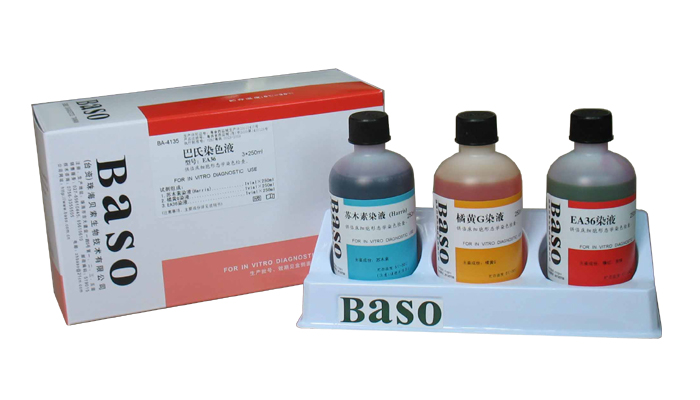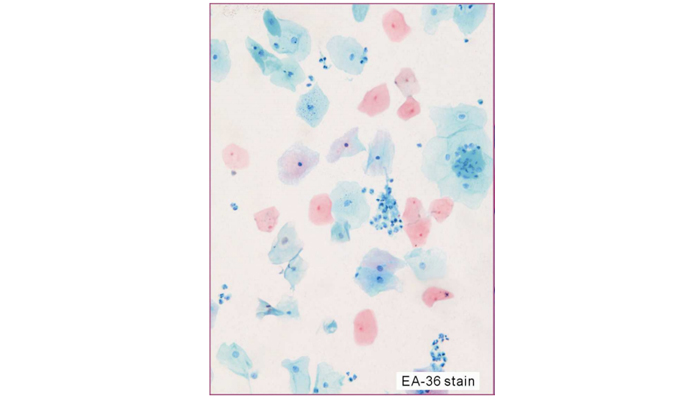Papanicolaou Stain
(EA 36)

Intended use:
It is intended to stain and check cellular morphology in clinic. During gynecological examination, Papanicolaou stain is a commonly used screening method for cervical cancer and pathological changes prior to cancer. With Papanicolaou stain, the hormonal level of woman can be observed and any infection by pathogens in genital meatus such as Candidiasis and Trichomonas can also be detected. This Papanicolaou stain kit utilizing EA36 and EA50 is a modificationof EA36 and both methods are essentially the same. Generally, EA36 and EA50 are mainly intended for gynecological specimen while other modified EA stains are intended for non-gynecological specimens (i.e. exfoliative cellsfrom chest and ascites).
Principle:
Papanicolaou stain contains Hematoxylin, Orange G, Eosin, Bismark Brown and Light Green, etc. Oxidative Hematoxylin will bind nucleic acids of karyon and appear indigo. Other stains will bind different chemical components of cytoplasm and appear in different colors. Cytoplasmic dyes are prepared with high concentration alcohol and strict measures of hydrating and dehydrating are taken during staining, hence various components of the cell will bind the dyes well. In general, the structure of nucleolus is clear, cytoplasm is bright and vivid, and the granules in cytoplasm are evident. Therefore, Papanicolaou stain is a very useful cytology staining method.
Specifications:
| Contents | 3Btlsx250ml | 3Btlsx1000ml | Components |
| Harris stain | 1x250ml | 3x1000ml | Hematoxylin |
| Orange G | 1x250ml | 3x1000ml | Orange G |
| EA36 | 1x250ml | 3x1000ml |
Light Green, Eosin, Bismark Brown |
Expected Results:
1. Epithelia: nuclear is indigo and nucleolus is red; keratinized cells in cytoplasm appear pink, full-keratinized
cells appear orange; cells prior to keratinization are sky-blue or light green.
2. Erythrocyte: vermeil or salmon pink.
3. Leukocyte: cytoplasm is sky-blue or light green, nucleolus is indigo.
4. Mucus: sky-blue or pink.


